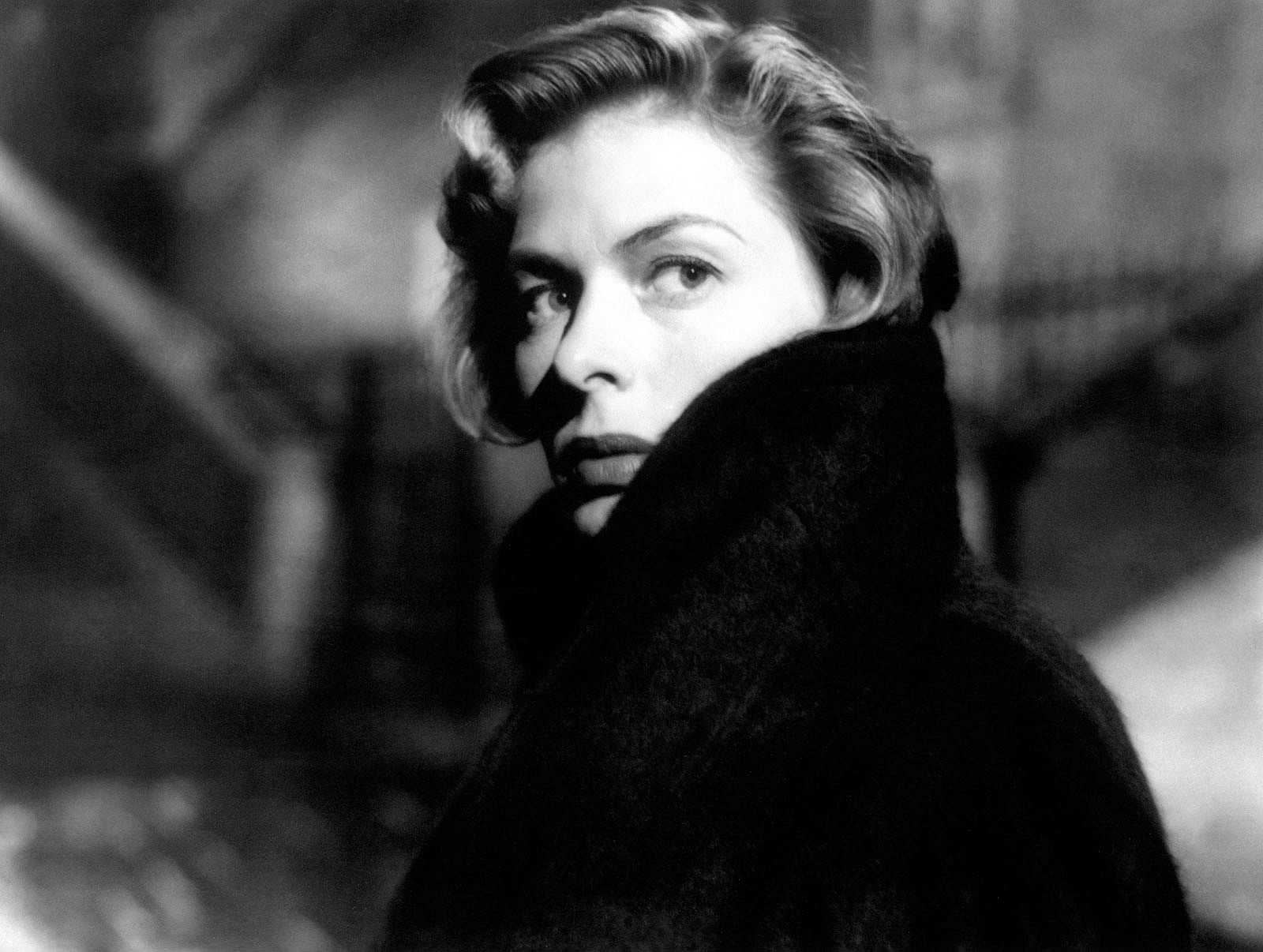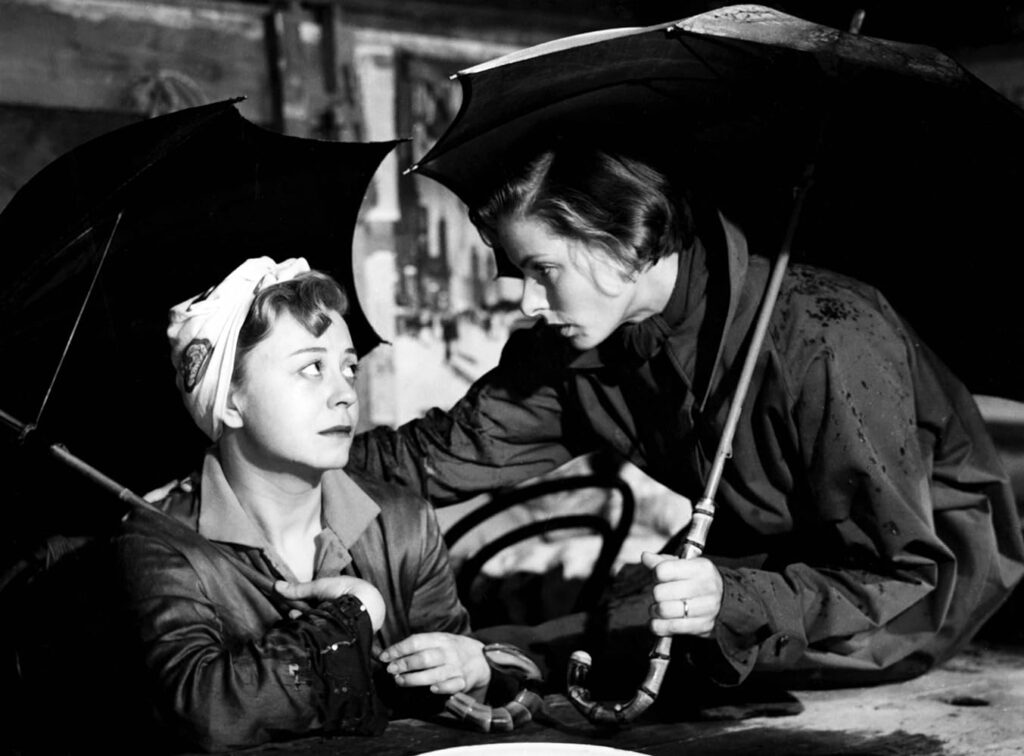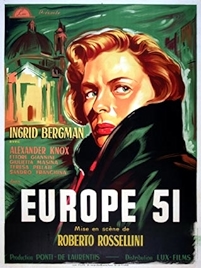Often described as a neorealist film, Roberto Rossellini’s second collaboration with Ingrid Bergman, Europa ’51, is actually more a Hollywood melodrama with one breakaway neorealist moment. But more than that it’s a vehicle designed to rehabilitate Bergman by getting her to do what she was best at on screen – suffer.
It’s the story of a high society woman who’s too busy drinking cocktails and exchanging chintzy chit-chat with her friends to notice that her son is in need of some love and affection. At a drinks party one night, son Michele attempts suicide by throwing himself down the stairs. He survives, only to die later of a complication.
Irene (Bergman) is thrown into crisis. Motivated mostly by guilt, she starts to behave like a latter-day Francis of Assissi (Rossellini had made a film about the saint two years earlier), renouncing her worldly goods and increasingly hanging out with the poor and benighted in the rougher parts of Rome.
Her appalled husband (Alexander Knox) and family – fearful that Irene is becoming a socialist – put up with this behaviour for a while but it isn’t long before they have tired of the do-gooding. Eventually they have her put into an asylum.
That’s the film, in essence, one woman’s journey towards a kind of calamitous saintliness against a backdrop of general disapproval, which Irene’s firebrand-journalist brother-in-law Andrea (Ettore Giannini) reckons is Irene discovering left-wing politics – “You’re developing a consciousness, a class consciousness,” he mansplains.
It’s high-end hokum, really, with Bergman biting her lip while Rossellini and his DP Aldo Tonti increasingly bathe her in beatific pools of light. A halo, you might call it. Overall, melodrama is the guiding spirit, in Bergman’s distraught acting, the torrid plot turns, the extravagant lighting and Renzo (younger brother of Roberto) Rossellini’s trembling strings and tearful woodwind on the soundtrack.
She’s Lady Bountiful among the mostly romanticised poor. For those who insist it is a neorealist movie there is one short section when Rossellini goes handheld, documentary-style and down and dirty among the street urchins, but then it’s back to High Hollywood and Douglas Sirk-style extravagance (albeit in black and white).
No one really liked the movie, which followed on from Stromboli, the flop Bergman and Rossellini had made together two years earlier. If you want to put a PR spin on it, it can be seen as Rossellini trying to restore the reputation of his new wife after the scandal of their affair, which started while they were making Stromboli and had ruined her career. From the 21st century it’s hard to imagine the furore that the Rossellini/Bergman affair caused but matters had got so out of proportion that Bergman had been denounced on the floor of the US Senate for having “perpetrated an assault on the institution of marriage”. In Europa ’51 Rossellini reminds us of the “Saint Ingrid” of 1945’s The Bells of St Mary’s and 1948’s Joan of Arc, not to mention the selfless Ilsa of Casablanca, renunciation writ large.
It’s more a more nuanced drama than my bald description suggests. There is some attention paid to class politics as well as the religious impulse. The poor are not relentlessly romanticised – the figure of Ines the prostitute is genuinely salty (and eventually tragic). And there’s some nuance in the way that manual labour is presented – as a source of dignity as well as enslavement.
Barely seen in the USA and not released at all in the UK, it’s a better film than its reputation. Directed at pace by Rossellini, it features a fine Bergman performance in what is essentially an impossible role – saints are, let’s face it, dull. Nice also to see Giulietta Masina (Fellini’s wife) as one of Irene’s new poor friends, Teresa Pellati as the pathetic Ines, and special mention has to go to Lydia Simoneschi, who did the Italian dub of Bergman. So much emoting at second hand, so well done you might even stop noticing the terrible disconnect between lips and voice.
I am an Amazon affiliate
© Steve Morrissey 2024


